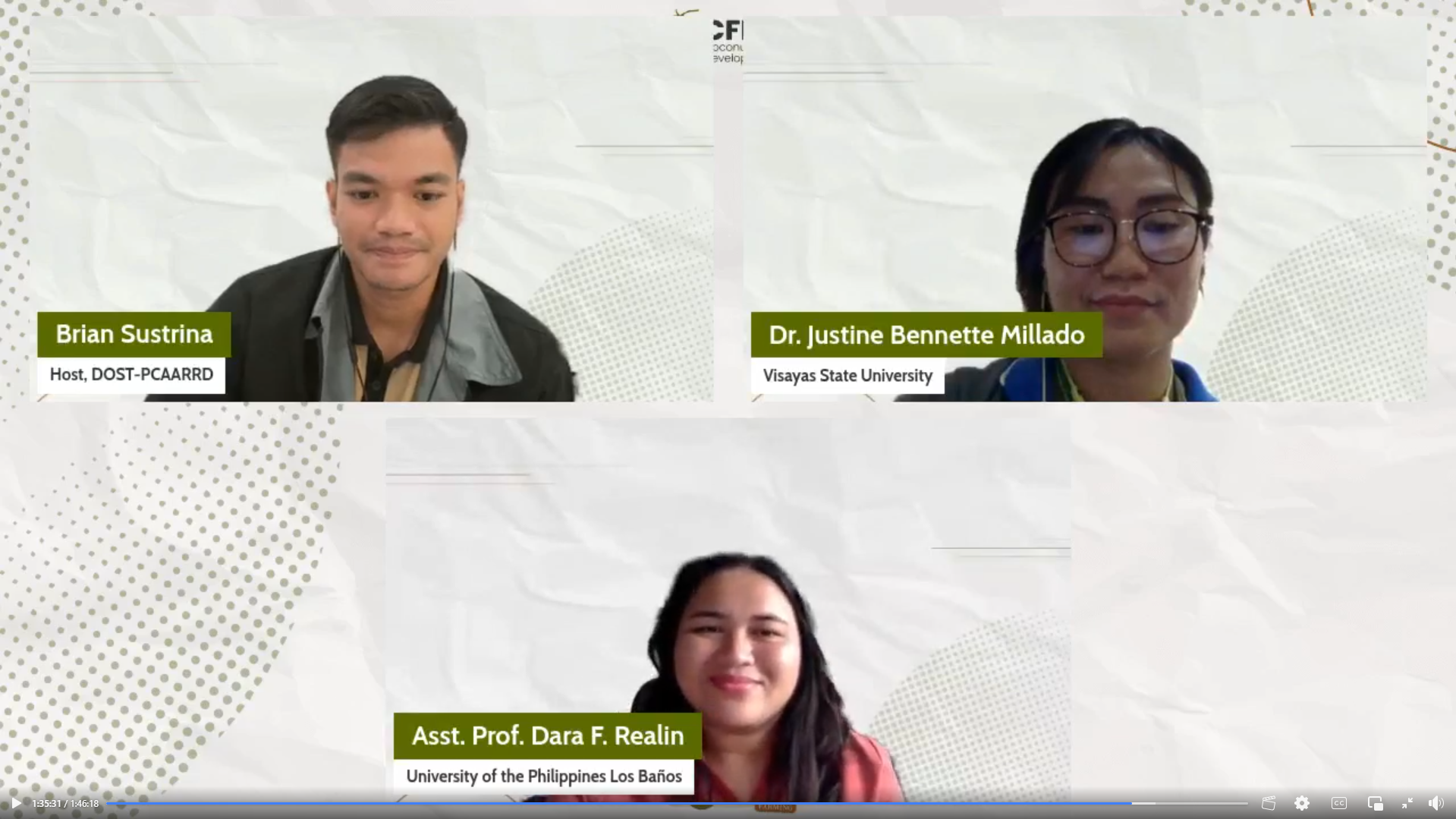In celebration of the 2024 National Coconut Week, the webinar, “Sustainable and Resilient Coconut Farming,” was held by the Philippine Council for Agriculture, Aquatic and Natural Resources Research and Development of the Department of Science and Technology (DOST-PCAARRD).
The webinar highlighted ongoing efforts to advance coconut farming practices through science and technology, featuring the resource persons from DOST-PCAARRD-funded projects under the Coconut Hybridization Program (CHP) Research.
Dr. Justine Bennette H. Millado from the Visayas State University (VSU) discussed the “Sustainable Management through Assessment, Surveillance, and Monitoring of Asiatic Palm Weevil (APW) in Hybrid Coconut Farms,” noting that APW infestations are often underreported due to confusion with the Coconut Rhinoceros Beetle (CRB). She also reported the discovery of infestations across 14 provinces in seven regions, including the entirety of Eastern Visayas, parts of Central and Western Visayas, Bicol, and Central Luzon.
APW inflicts severe damage on coconut palms, manifesting as spear leaf death, emergence holes, hollow trunks, and adult weevil presence, resulting in significant yield losses. Dr. Millado emphasized that characterizing their polymorphs and mapping their distribution and key jump-off points are crucial to supporting Integrated Pest Management (IPM) strategies.

Mr. Brian Angelo S. Sustrina from DOST-PCAARRD's Crops Research Division as he facilitates the discussion with Dr. Justine Bennette H. Millado from the Visayas State University (VSU) and Asst. Professor Dara Maria F. Realin from the University of the Philippines Los Baños (UPLB) during the webinar. (Image Credit: CRD, DOST-PCAARRD)
Assistant Professor Dara Maria F. Realin from the University of the Philippines Los Baños (UPLB) presented the topic, “Promoting Adaptive Management of Coconut Farms in the Face of Climate Change.” She discussed the role of capacity-building initiatives in promoting climate-resilient and regenerative practices within the coconut industry.
Assistant Professor Realin emphasized that with the impacts of climate change, diversification is crucial for enhancing resilience, productivity, and sustainability of coconut farms, ultimately leading to better income opportunities for coconut farmers.
During the webinar, DOST-PCAARRD Executive Director Reynaldo V. Ebora stressed the webinar's relevance amid increasing pest incidences and climate change that threaten coconut production and farmers' incomes.
This sentiment was echoed by Crops Research Division (CRD) Director Leilani D. Pelegrina, hoping that the webinar insights would help farmers and stakeholders improve their management practices and support sustainable coconut production.
The CHP Research website was also introduced in the activity. This platform is designed to promote research and advancements in coconut hybridization while facilitating knowledge sharing and collaboration among researchers, farmers, and industry stakeholders.
Over 700 coconut farmers, researchers, enthusiasts, and students from state universities and colleges (SUCs) participated in the webinar.
Industry Strategic S&T Program (ISP) Manager for Coconut Alissa Carol M. Ibarra synthesized the activity proceedings while CHP Staff Brian Angelo S. Sustrina hosted and moderated the event.

